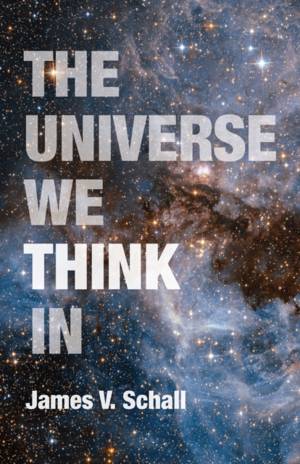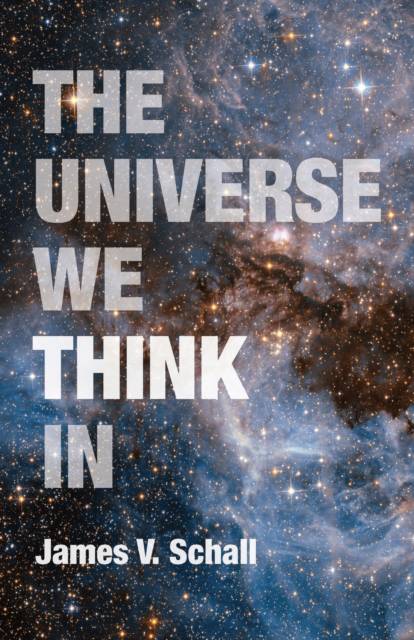
- Retrait gratuit dans votre magasin Club
- 7.000.000 titres dans notre catalogue
- Payer en toute sécurité
- Toujours un magasin près de chez vous
- Retrait gratuit dans votre magasin Club
- 7.000.0000 titres dans notre catalogue
- Payer en toute sécurité
- Toujours un magasin près de chez vous
Description
The Universe We Think In arises from a tradition of realism, both philosophical and political, a universe in which the common sense understanding of things is included in our judgement about them. The scope is both vast and narrow - vast because it is aware of the reality of things, narrow because it is the individual person who can and wants to know them. The abiding undercurrent of this book is that the cosmos, the universe, does not look at us human beings, but we look at it, seek to understand it, and do understand much of it. Why is this so? The book seeks to begin with the basic question that we each ought to pose to ourselves; namely: "Why do I exist?" Nothing is more immediate than the relation of what is not ourselves to ourselves. We have the strange experience that we cannot even 'know ourselves' unless we know something that is not ourselves. In a sense, we have two related worlds, the one that exists, a universe, as it were, that includes each of us, and the same world that we think about. What is so striking about our personal existence is that we can know what is not ourselves. Indeed, we not only want to know what is not ourselves, but this knowledge of what is not ourselves is also, in part, the reason for our existence in the first place. Our thinking about the world is not unrelated to the world that is. Yet, once we understand what is in the world, both systematically and casually, we find ourselves free in a world of others who also think and communicate with one another. Thus, to know ourselves includes knowing what is not ourselves in its own diversity. Ultimately, we seek to know why it all is rather than is not, why it all belongs together in the same universe.
Spécifications
Parties prenantes
- Auteur(s) :
- Editeur:
Contenu
- Nombre de pages :
- 224
- Langue:
- Anglais
Caractéristiques
- EAN:
- 9780813229751
- Date de parution :
- 16-02-18
- Format:
- Livre broché
- Format numérique:
- Trade paperback (VS)
- Dimensions :
- 140 mm x 213 mm
- Poids :
- 272 g

Les avis
Nous publions uniquement les avis qui respectent les conditions requises. Consultez nos conditions pour les avis.






